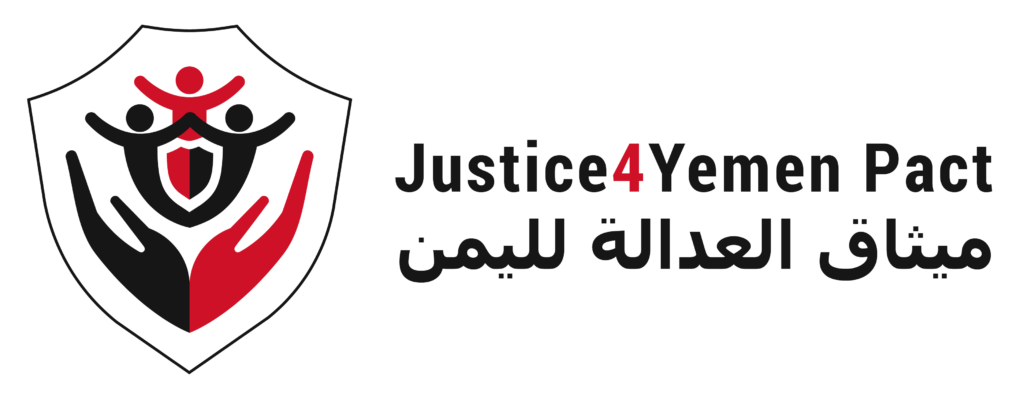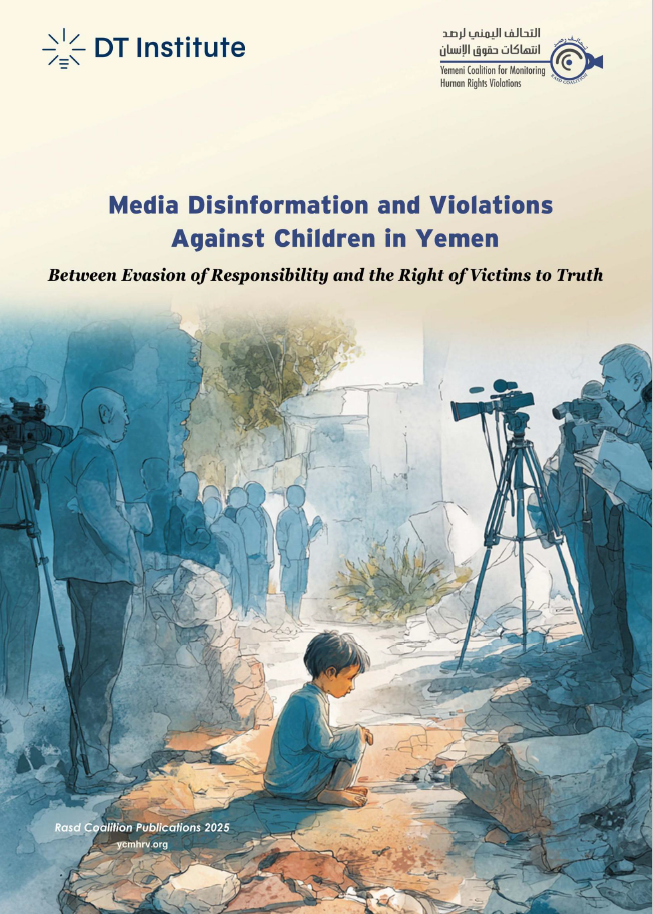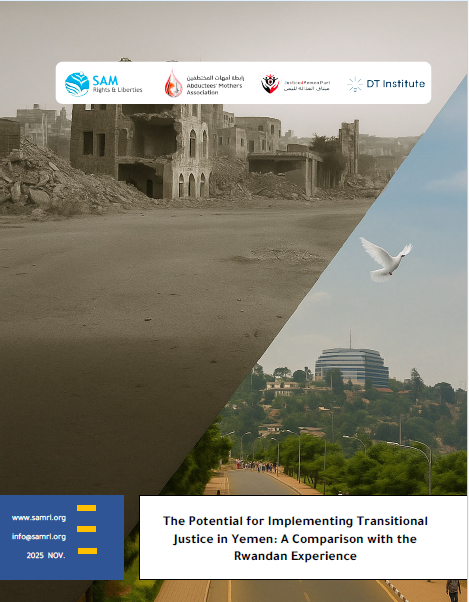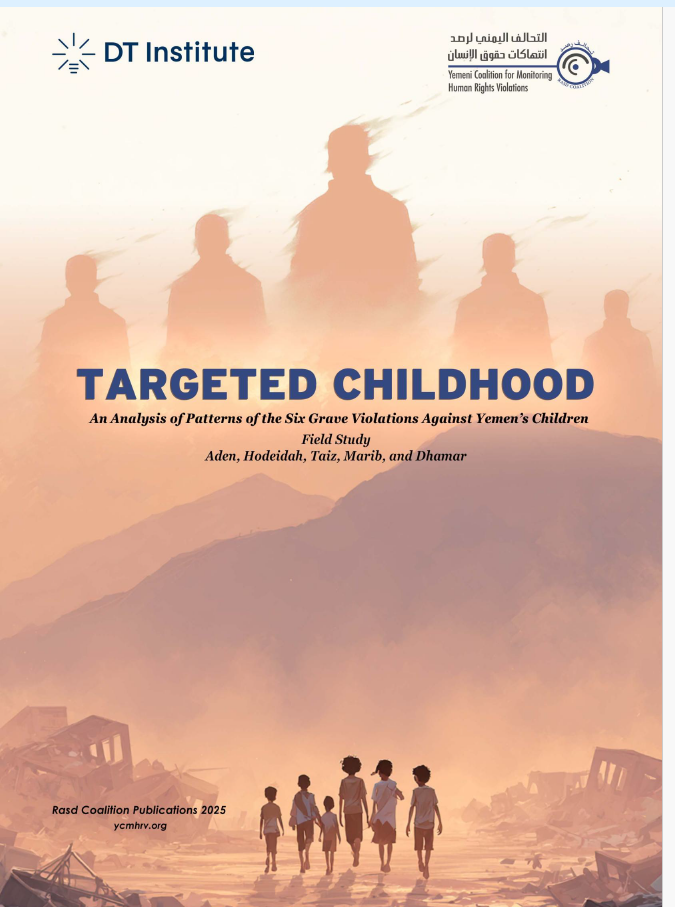Program Name: Supporting Awareness, Facilitating Enforcement of Children’s Rights in the Yemeni Conflict (SAFE)
Initiative Name: Promoting Child Protection and Mental Health Support in Yemen
1. Overview
After over than a decade of conflict in Yemen, the humanitarian situation remains catastrophic, with children and women carrying the greatest burden of displacement, poverty, and violence. Yemen ranks fifth globally in the number of internally displaced persons (IDPs),[1] with more than four million people forced to leave their homes.[2] While humanitarian interventions have largely concentrated on livelihood support, the devastating impact on mental health and psychological well-being remains overlooked.
The violations children are subjected to — including harassment, exploitation, and denial of basic rights — do not end with the act itself. When left unreported or silenced, these experiences leave deep but unseen marks on their psychology, manifesting in fear, isolation, loss of confidence, and long-term trauma that often goes untreated. SAFE partners documented more than 400 cases of child rights violations, and 40 percent of these involved marginalized and displaced children.[3] This alarming figure reflects not only the scale of abuse but also the hidden emotional and psychological toll of such violations, underscoring the urgent need for protection and psychosocial support.
The SAFE Program was designed to respond to this need, moving beyond documentation to directly support vulnerable children and their caregivers. Through more than 25 psychosocial support sessions conducted in Taiz, Aden, Abyan, Lahj, and Marib, the project reached over 650 beneficiaries living in IDP camps and marginalized communities.[4] These sessions combined trauma-healing activities with awareness raising on grave violations and guidance on reporting mechanisms. Special support was also provided to children and caregivers with acute needs through individual counseling, extra sessions, and tailored interventions based on assessments of their psychological state.
2. Impact
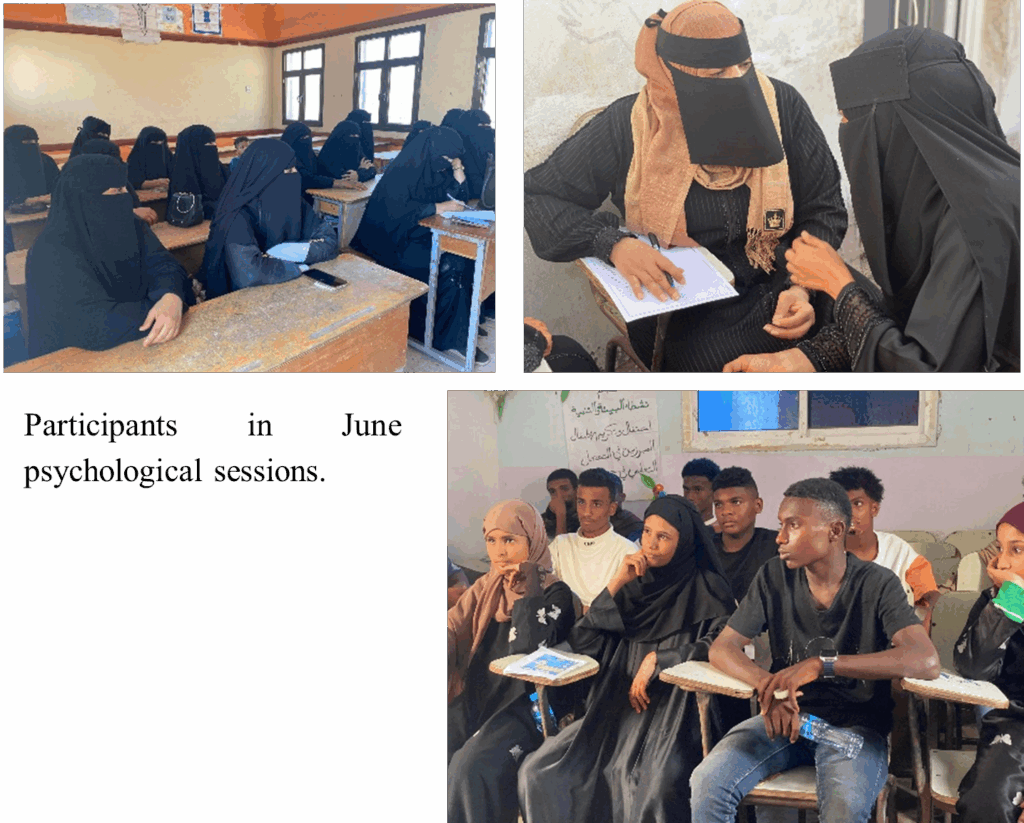
The sessions had a transformative impact on the lives of many participants. Caregivers reported relief from trauma symptoms such as insomnia and anxiety, while children showed progress in self-expression, social interaction, and coping with distress. One displaced girl in Lahj who had suffered harassment while collecting plastic bottles to earn a living found space to heal in SAFE’s sessions. For the first time, she was able to share her experience and learn that what she went through constituted a grave violation against a child in times of war (as coined by the United Nations Children’s Fund[5]) that should be reported rather than endured in silence.
Another child (15 years) in Taiz, who struggled with isolation and fear of losing her chance at education, was supported through counseling and creative activities that helped her reconnect with her peers and discover her talents. With the support of her caregiver and a small grant, she began making accessories, turning to her creative outlet as a source of pride, emotional release, and income. Reflecting on her progress, she said, I won’t live in fear anymore. I’ll enjoy making accessories and make sure to invest in my future children’s education—something I was deprived of.
Female caregivers in Aden’s IDP camps, many of whom had been subjected to harassment, were offered targeted sessions where they could speak openly, learn about reporting mechanisms, and work on rebuilding their self-confidence. One woman expressed, “I cried today… I feel relieved, because I am not alone.” These safe spaces not only offered emotional release but also fostered solidarity among women who shared experiences and supported each other in overcoming trauma.
Moreover, psychological sessions were transformative in enhancing familial relationships and ongoing support. Caregivers reported reduced anxiety and improved coping with trauma symptoms (e.g., insomnia). Psychologists observed stronger communication between children and caregivers, increased self-confidence, and improved concentration among participants. Overall, the activities contributed to children developing a positive sense of self and of their family unit, as their caregivers engaged and supported them throughout the session.
3. Learning, Documentation, and Replication

SAFE’s work did not stop at the community level. The project engaged government leaders from the Ministries of Human Rights and Legal Affairs, Justice, and Law Enforcement to advocate for stronger child protection mechanisms. Meetings with key officials identified challenges and gaps while pushing for greater accountability and activation of child protection units. The project also extended its awareness-raising efforts to security actors. Sessions were delivered to military camps in Aden to highlight violations committed against children, aiming to foster behavioral change and prevent further abuses.
Accompanying the psychological sessions and advocacy efforts were awareness-raising and legal support sessions, enhancing the knowledge of IDP children and caregivers and empowering them to address the violations committed against them. Four of these education sessions were held throughout Aden and Taiz, resulting in increased knowledge of grave violations against children’s rights, their legal rights and remedies, and reporting avenues, for over 259 participants.
Such events also emphasized the importance of psychological support, encouraging participants to reach out or seek counseling, due to the crucial need for such support. In the words of DT Institute’s Program Officer Lynn Arbid, “Empowerment for victims of human rights violations – especially those as uniquely vulnerable and susceptible to lifelong trauma and emotional scarring as children – starts with psychological support and healing. The accountability and documentation processes are commonly re-traumatizing, and victims cannot push for justice without trauma-informed care, tailored to address their psychological needs.”
Pre-survey results revealed that approximately 40 percent of participants at SAFE partners’ August education session could only recognize general psychosocial issues, such as fear, sadness or aggression, while fewer than approximately 10 percent mentioned specific red flags, like withdrawal or concentration problems. In comparison, over 70 percent of participants in the post-survey identified specific psychosocial red flags, including withdrawal, difficulties concentrating, and bedwetting, among others.
Participants’ knowledge of GVAC and TJ increased as well. Prior to the training, the survey revealed that almost no one had heard of TJ and knowledge of the GVAC was limited. After the training, over 70 percent of participants rated their understanding of the GVAC, and the legal procedures and psychosocial support required to address them, as “good to excellent.” [ “Teaching children about their rights is more than education — it is healing. It tells them: what happened to you was wrong, the world has rules to protect you, and you never deserved that pain. From this truth, confidence and dignity begin to grow” Sahar Mohammed, Program Assistant, DT Institute.
4. Scaling Impact
Many beneficiaries – including all the beneficiaries in SAFE partners’ sixth psychological session in Aden – requested and/or recommended further support, even remotely through WhatsApp consultations, reflecting the lasting need and crucial value of such interventions. Moreover, over 90 percent of participants in multiple sessions expressed appreciation for the content and praised the trainer’s interactive and trauma-informed approach.
Moreover, as the Assistant Director of the Executive Unit for IDP Camps in Marib has emphasized, a vast majority of the IDPs in this area – and, in fact, throughout Yemen – are children.[6] He further highlighted that these children are not only displaced – which already has grave implications on their psychological health – but have also encountered numerous human rights violations and have received essentially no support focused on children’s rights until the SAFE Program.
The demand for ongoing support demonstrates the importance of scaling up SAFE’s interventions. Expanding psychosocial services through mobile counseling units, online follow-up, and community-based peer groups would strengthen the project’s reach and sustainability. “When displaced children receive early psychological support, they begin to open up — even asking for a parent’s hug — a simple step that is vital for their healthy development.,” stated the SPARK-recruited Aden psychological consultant.
Moreover, it would further complement the SAFE Program’s use and ability to gather documentation and survivor testimonies, used to advocate in discussions with both local and international stakeholders, pressing them to prioritize child protection. The collected evidence would also further enable the preparation and publication of investigative reports, online campaigns, and public awareness sessions to continue amplifying the voices of survivors and keep child protection at the forefront of national and international discussions.
As the SAFE Program’s integrated approach continues to demonstrate, protecting children and caregivers in Yemen requires more than documenting violations. It demands a holistic response that combines healing, empowerment, and advocacy, ensuring that survivors not only find relief but also regain dignity, resilience, and hope for the future.
[3] https://justice4yemenpact.org/wp-content/uploads/2024/04/YCMHRV-Investigative-Report-Children-of-Yemen-Ongoing-Violations-.pdf
[4] https://www.adentodey.net/archives/244186
[5] https://www.unicef.org/children-under-attack/six-grave-violations-against-children

